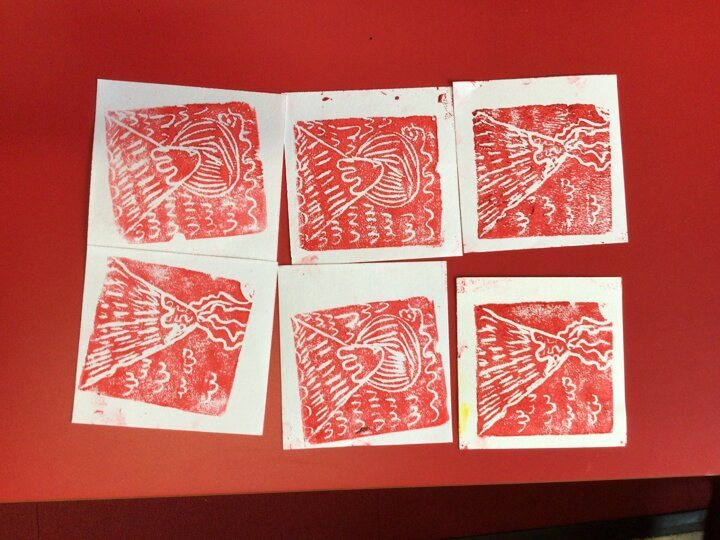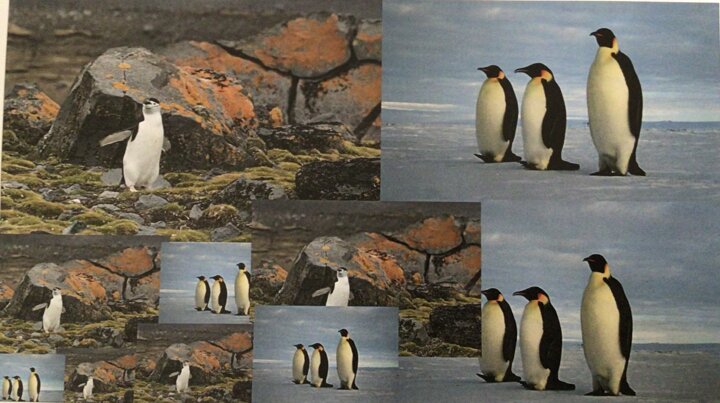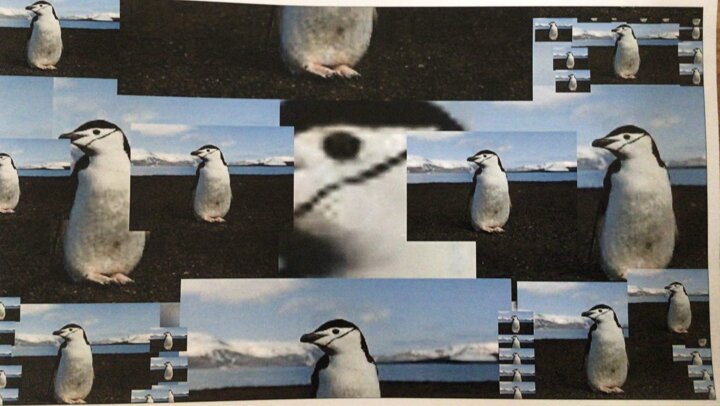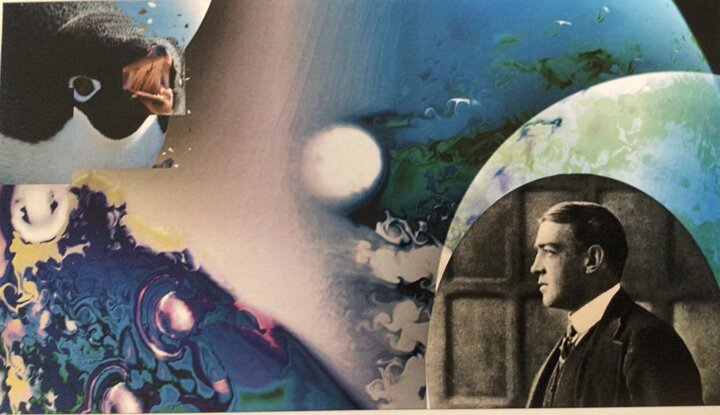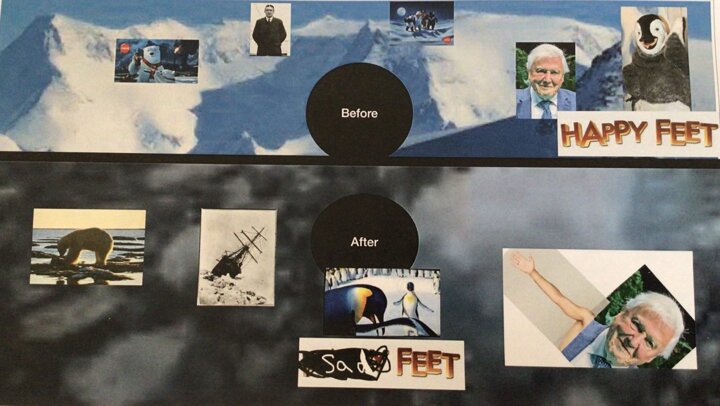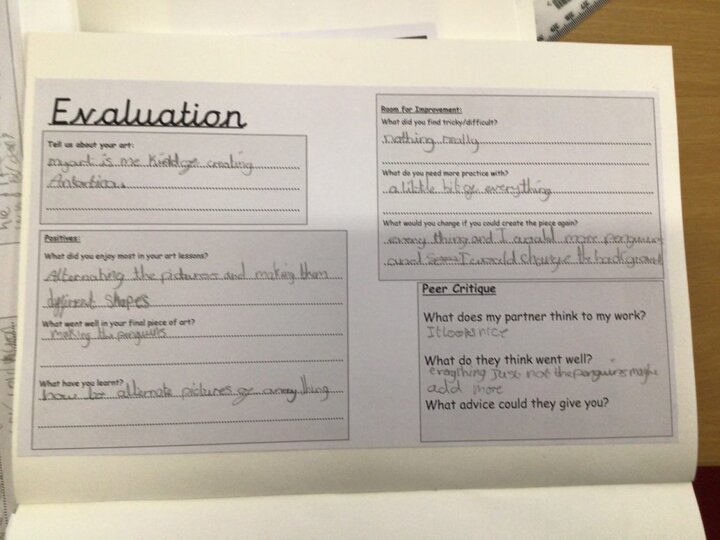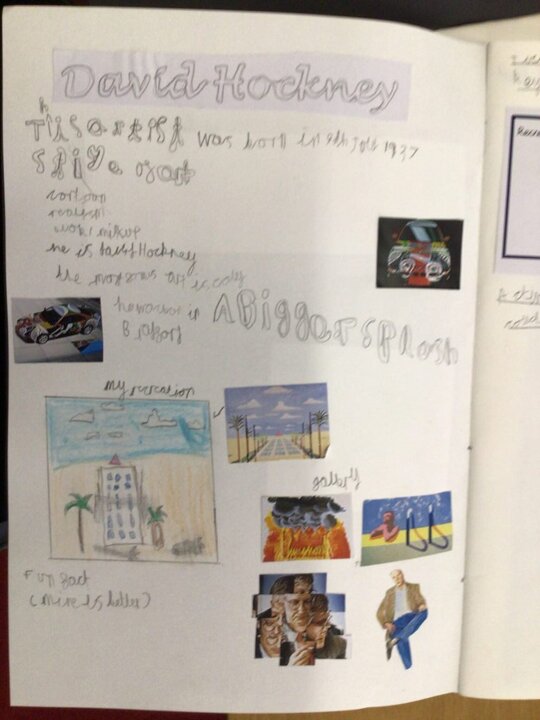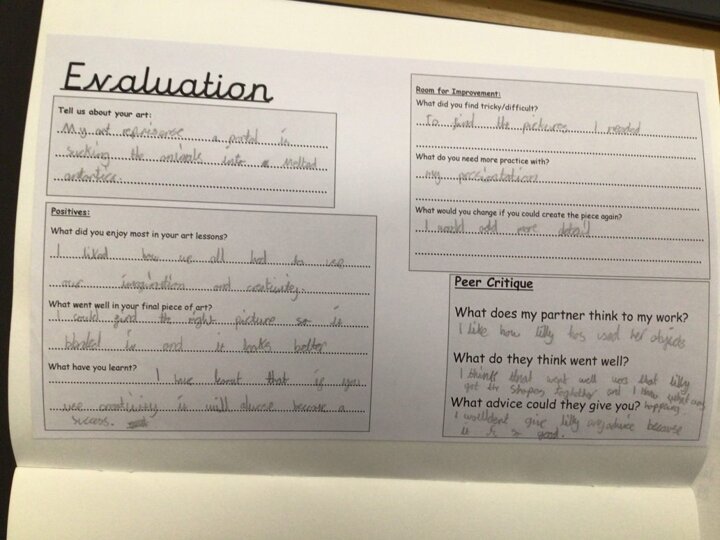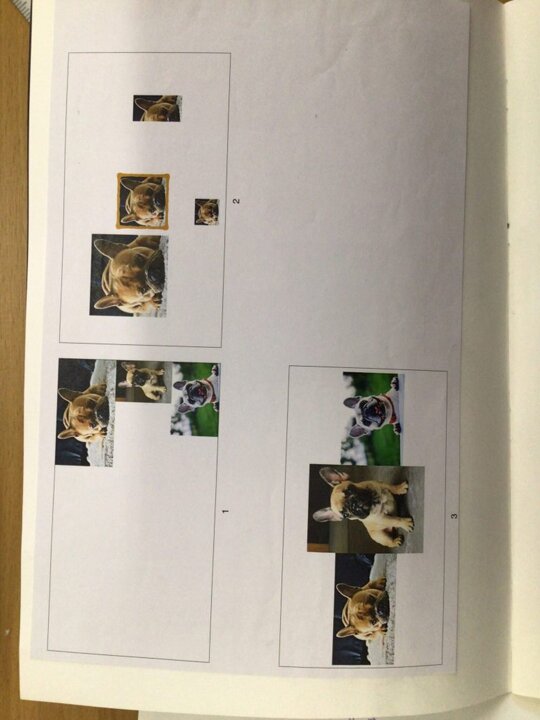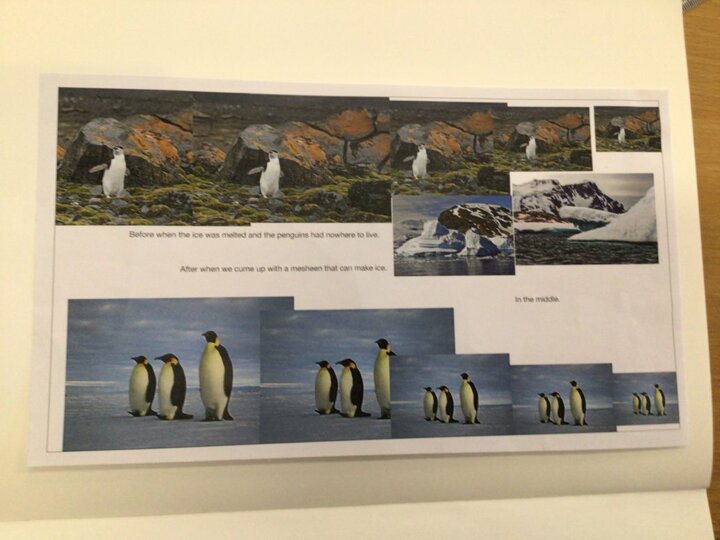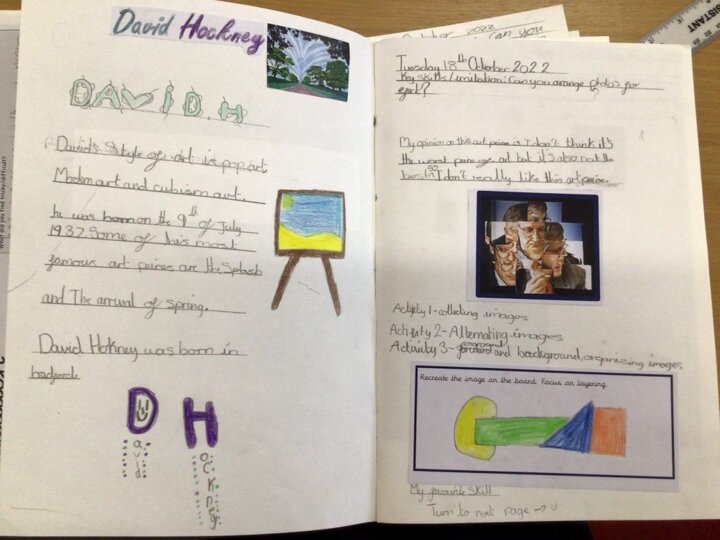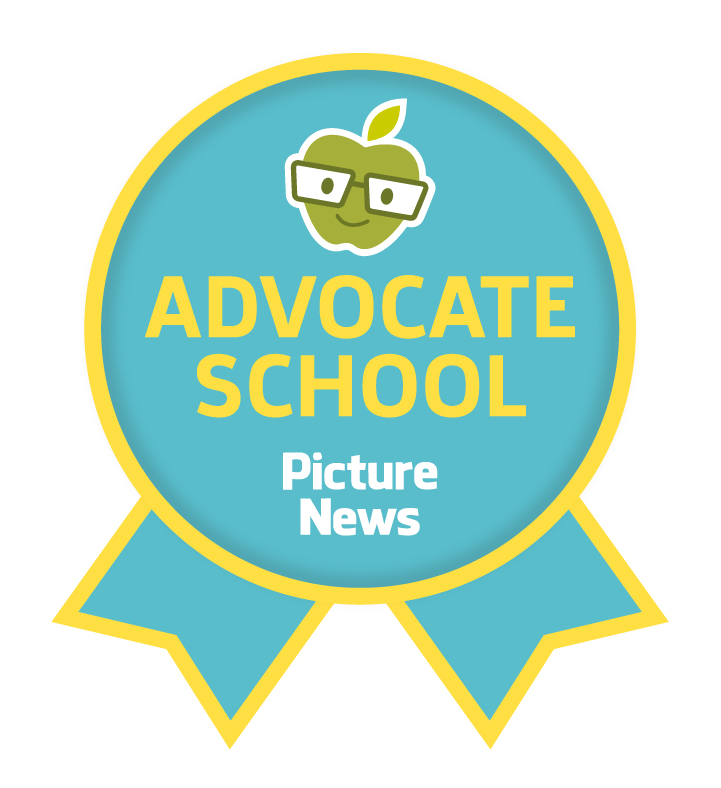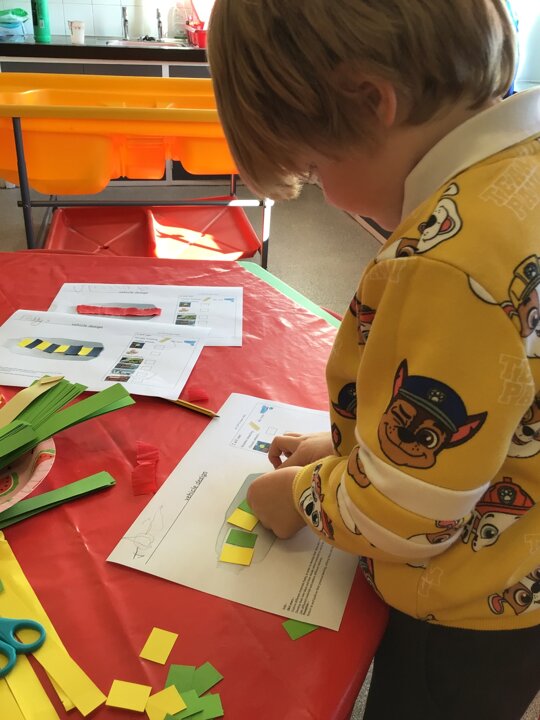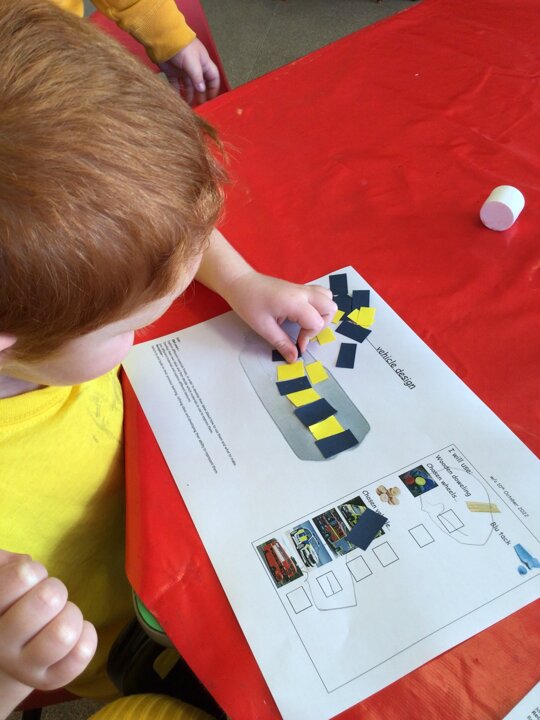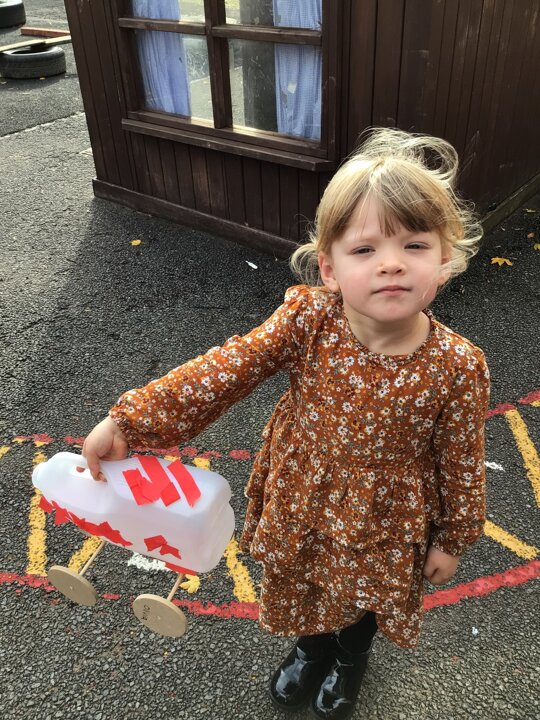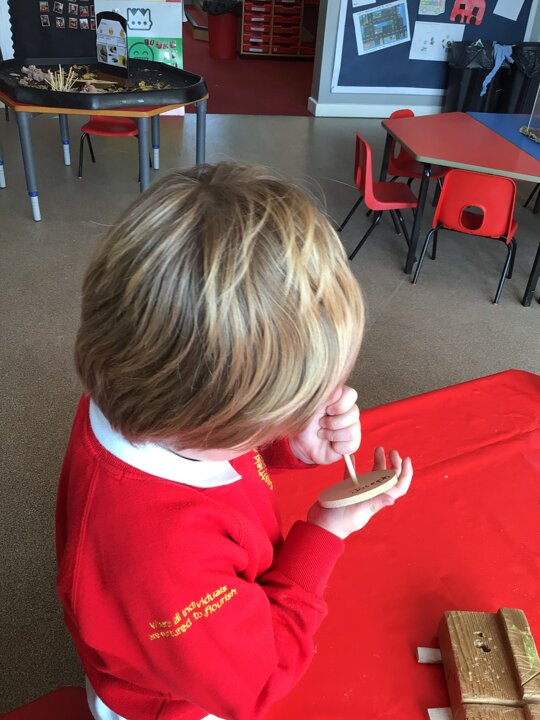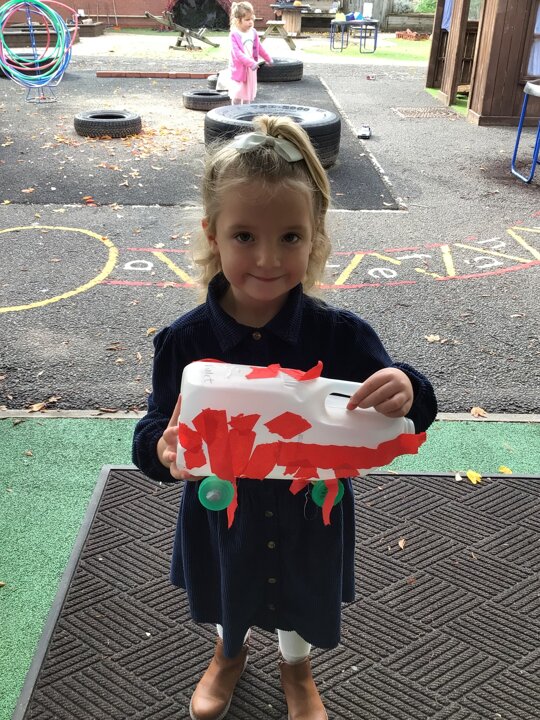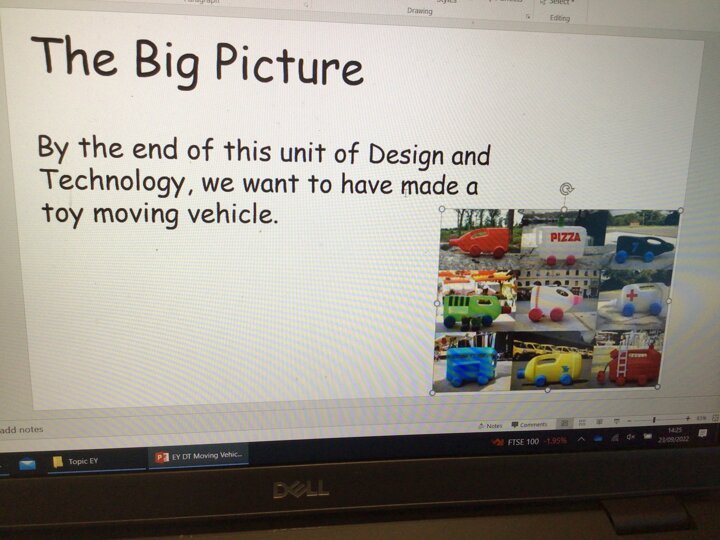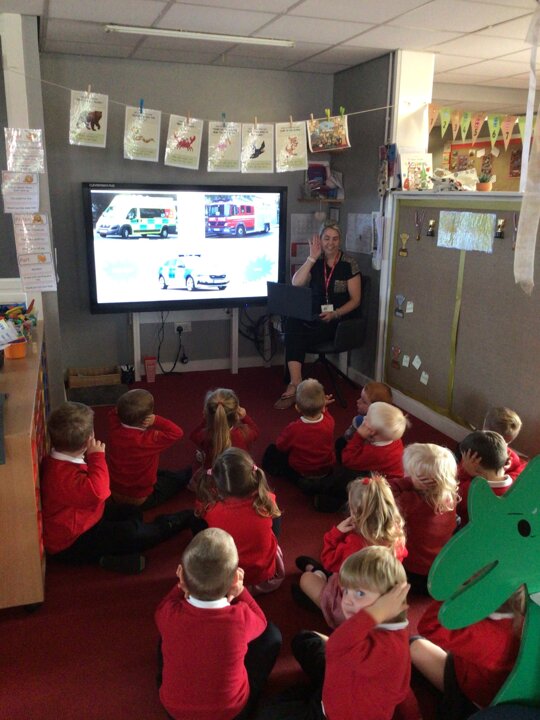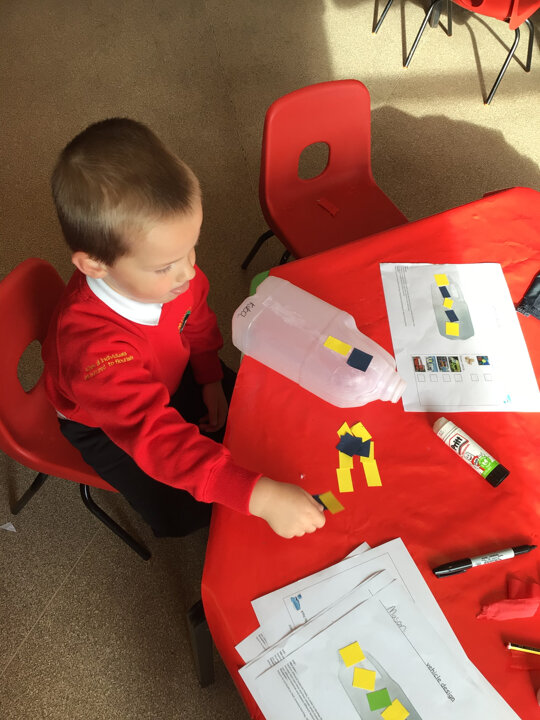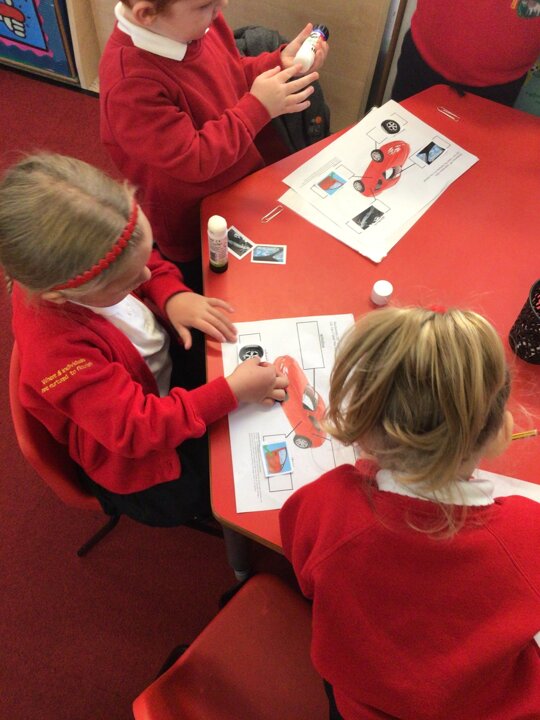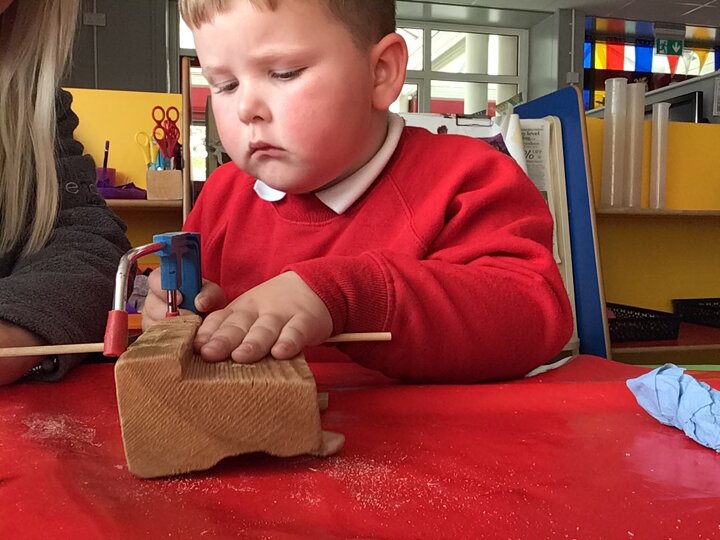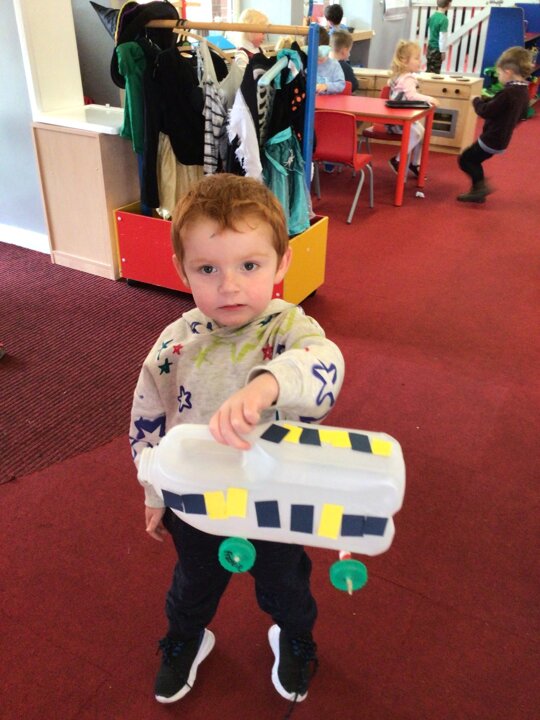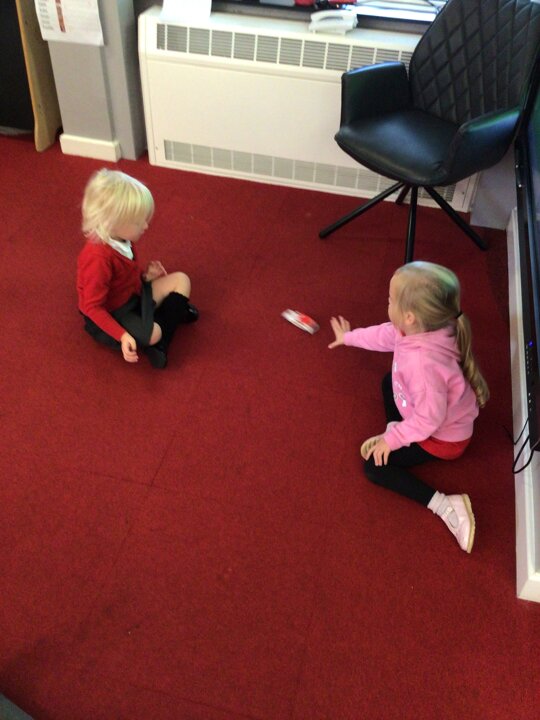Curriculum Overview
Intent:
At Eastfield Primary Academy our curriculum offer gives children the opportunity to understand the world around them through the acquisition of declarative knowledge (a rich and deep subject knowledge), alongside procedural knowledge (learning new skills) by way of a variety of interesting contexts, whilst experiencing the challenge and enjoyment of learning.
Our curriculum is taught through a pedagogy that offers all children a memorable experience within each topic, at an appropriate point, which then leads the children into problem solving, being creative and communicating their thinking in a variety of different ways, sustaining the children’s interests. Woven within this, is a focus on the acquisition of basic skills: reading, writing and maths and providing a curriculum that is language rich ensuring our children can articulate their learning and thinking through both verbal and written communication.
Our children learn about respecting themselves and others through working collaboratively and are given time to reflect and think mindfully about their learning. They are encouraged to take part in democratic activities across the curriculum, expressing their opinions on a range of different topics and issues so that they can make a positive contribution to Eastfield, the local and global communities.
Curriculum enrichment is important to us and we ensure that our children have access to high quality resources, both in and out of the classroom; promoting a sense of pride in all that we do. Trips out and visitors in, ensure that our curriculum is exciting, memorable and we provide experiences that our children do not always have access to; deepening their understanding of the world around them. We welcome parents and carers in at every available opportunity to take part in their children’s learning experiences. Our out of school provision allows children to further develop their skills in sport, music, art, DT, computing and forest schools. Links are made with local comprehensive schools and local businesses to ensure that children, particularly across KS2, have an opportunity to think about long term goals, aspirations and career development.
Implementation:
Our curriculum implementation is underpinned by our 3 main drivers:
- Pride – we take pride in ourselves, our environment and in all we do.
- Collaboration – we use Kagan structures to support us working collaboratively; what we can do in a team today, we can achieve on our own tomorrow.
- Understanding – we use a bespoke curriculum, designed by our subject leaders to provide a vehicle for learning about and understanding the world around us, and this is supported by our Reading and Writing Strategies.
We have a clear long-term plan that identifies each unit plan to be taught on a half termly basis. Units are taught according to the main subject focus; in each half term from Early years to Year 6 the same subject focus is taught, for example in Autumn 1 a geography focused unit is taught and so on. Across the year:
- 2 x History units
- 2 x Geography units
- 1 x DT unit
- 1 x Art Unit
There is also an art or DT based week long unit at the end of each geography and history unit.
Each year group follows its own unit plans, ensuring that prior learning is built upon, revisited and progression is clear. Our Writing Strategy is driven by a text, and this is chosen to support and enrich the unit plans, to provide opportunities for our children to use and build upon their declarative and procedural knowledge. Whilst our Reading Strategy’s main aims are to develop our children’s love of reading, and literal and inference skills using a wide range of texts, it too, provides opportunities for our children to use and build upon their declarative and procedural knowledge as and where appropriate.
Subject Coverage:
Geography, History, Art and Design & Technology are taught through unit plans that have been designed by our subject leaders. Music, PSHE/RSE, RE, Science and Spanish are taught discreetly. Planning for these subject areas is delivered by paid experts and discreet schemes.
Maths - children secure their fluency skills by completing 'Strive for Five', before moving on to more complex mathematics. Children apply their knowledge in reasoning tasks, where children describe, explain, convince, justify and prove. They also apply their knowledge to a range of problems: logic, rules and patterns, word, finding all possibilities and visual. Fluency, reasoning and problem-solving skills are embedded within mathematics lessons and are developed consistently over time.
Computing - we teach a bespoke curriculum designed by our academy trust in order to cover the three key areas of: Computer Science, Information Technology and Digital Literacy. We teach the curriculum to ensure all children are taught a range of key skills to help prepare them for the fast-changing technological world that we live in. We teach all children to use the internet in a safe and responsible way. They are taught how to deal with inappropriate content that they may come across in their school and home life, and how to report any concerns. However, some unit plans for other subject areas do provide opportunities for children to use their computing knowledge for a range of different audiences/contexts.
R.E – The RE leader has designed a bespoke curriculum based on the requirements of the Lincolnshire Agreed Syllabus. The approach is an enquiry-based approach to teaching and learning. Christianity is taught in every year group, with Christmas and Easter given new treatment each year, developing the acquisition of declarative knowledge in a progressive way. Hinduism, Islam and Judaism are also covered. Our belief is that if an enquiry-based model is used well, children’s critical thinking skills can be developed, their motivation to learn increased, and their knowledge and understanding of, and empathy towards people and their beliefs, religious or otherwise, will be enhanced.
This approach takes very seriously the philosophy that children are free to make their own choices and decisions concerning religion and belief. RE does not try to persuade but rather to inform and develop the skills with which evaluation can take place.
Across the Early Years the children study Christianity, Judaism and Hinduism. In Key Stage 1 the children study Christianity, Judaism and Islam. In Key Stage 2 the children study Christianity, Islam and Hinduism.
P.E. - we use the 'Beyond the Physical' programme to deliver a comprehensive whole-school approach to P.E. We aim to inspire children to develop competence to excel in a broad range of physical activities, to be physically active for sustained periods of time, to provide opportunities for children to engage in competitive sports and activities, and ultimately for our children to lead healthy, active lives.
PSHCE – we use the ‘Jigsaw’ programme to deliver a comprehensive whole-school approach from Nursery to Year 6 that includes PSHE, emotional literacy, social skills and spiritual development.
Music – we currently use a music specialist form our local authority to deliver music tuition across all year groups.
Spanish – we use the ‘Primary Languages Network’ scheme of work to deliver a comprehensive approach to Spanish across KS2. It uses Kagan structures to enhance teaching and learning, and support collaboration.
Science – The science leader has developed a bespoke curriculum based on the National Curriculum and the needs of our children. This is delivered via the use of unit plans that again, allow for the development of both procedural and declarative knowledge to develop progressively over time.
Impact:
We measure the impact of our curriculum in a variety of ways:
- Evidence of children’s learning journey’s in their books.
- Children and staff assess against clearly identified outcomes for each unit plan. This is recorded in children’s Curriculum books. It is a visible record for both children and staff, demonstrating what the children have achieved and what they need to do next.
- Marking, feedback and children correcting and/or editing their work demonstrates progress within a learning sequence.
- Children’s voice is sought regarding their learning; enjoyment, engagement, pride, opportunities for collaboration, what would make their learning even better etc.
- Photographs capture hands-on opportunities.
- Displays within classrooms and across Eastfield showcase children’s learning, the experiences and opportunities they have had; progression within a sequence of learning, and across a Phase and/or Eastfield.
- Summative assessments provide a baseline, mid-year and end of year benchmark of attainment and progress for Reading, Spelling and Grammar from Y1 to Y6. Statutory tests also provide a benchmark for attainment and progress.
- Monitoring behaviour through incidents recorded in CPOMs.
- Monitoring attendance; over the past three years our attendance has been above 95%.
- Subject monitoring – we have a clear cycle of monitoring for staff to share good practice, identify CPD needs and enhance staff practice.
- Gaps in learning are quickly identified via the use of a ten key questions quiz which allows staff to assess the need for any pre-teaching prior to commencing with any new learning.
Learning Showcase
Curriculum newsletters are updated half-termly and provide information to parents about what is being taught in that half term.
Curriculum Newsletters
Early Years at Eastfield Primary Academy
As part of our Ofsted inspection in November 2023 our EYFS was graded as ‘outstanding’!
‘Children in the Nursery and Reception classes benefit from provision of an exceptional quality. The most is made of every opportunity to support children in these classes.’ Ofsted Nov, 2023.
In EYFS, we ensure that our children enjoy a rich, immersive and engaging learning environment where they can explore, experiment and investigate both indoors and outdoors. The quality of a child’s early experience is vital for their future success. We provide high-quality early education where all of our children take part in a wide range of hands on and practical learning experiences on a 1-1 basis, in small groups and in large groups.
Continuous provision allows our children to choose where they want to learn through play. During this time, activities are set up both indoors and outdoors for the children to access, both independently and with an adult. All activities are based upon our children’s next steps in learning ensuring that our children are challenged, and their learning is moved forward. We ensure that there are high quality interactions with our children during planned and child-initiated play activities. Practitioner’s model language, show, explain, demonstrate, question, encourage, facilitate, and stimulate our children throughout the day.
Our children are assessed throughout the Foundation Stage using the Early Years Foundation Stage Curriculum. through on-going observations and sampling of their work. Observation and work sampling are used to identify children’s interests and next steps, which are then used for planning daily, weekly and informing our topics.
At the end of the Early Years, our children are assessed against the 17 Early Learning Goals. If they have met the goals they achieve ‘Expected’. Children who achieve expected in the first 12 goals are said to have achieved a ‘Good Level of Development’.
We work hard to ensure that our children enjoy their time in our EYFS provision, but that we also put the building blocks in place to ensure that they are ready for their transition into Year 1 and the next steps on their learning journey!
EYFS Guidance
Nursery Progression
Reception Progression
Learning Showcase
Our Reading Curriculum
Reading at Eastfield Primary Academy is not something that we leave to chance! We believe every single child has the right to learn to read regardless of social and economic circumstances, ethnicity, gender, the language spoken at home and special educational needs. We believe the teaching of reading is fundamental to a child’s success in life and we are continuously striving to enhance our provision of the teaching of reading. As a result, we have developed a Strategy for the teaching of reading based on current research and staff expertise.
We ensure that children have access to a wide range of different types of literature by identifying the texts that are to be used within the reading sessions, the literacy sessions and the class reads. This enables the literature across school to support the wider curriculum and broaden children’s knowledge of the wider world. Reading and the use of high quality texts permeates all curriculum areas.
We encourage children to develop a love of reading through:
- listening to a wide range of stories in class and at assembly time
- sharing books with peers
- sharing books with a Reading Buddy
- using a book/story to support learning in other curriculum subjects
- having access to a wide range of high-quality scheme reading books to support the skill of learning to read
- having access to a wide range of high-quality books to read at home
- author visits
- theatre experiences both within and outside of school
We have a wide range of reading material that children access to read at home. These follow a coloured book banding system that is aligned to our phonic progression (Little Wandle Letters & Sounds). We acknowledge it is the job of the school to teach children how to read but we know that the best readers will also be reading in the home environment. Each child has a reading book and a reading record and whenever a child reads, it is recorded in there.
Workshops are held throughout different times of the year to inform parents and carers how we teach reading and phonics and the different skills involved.
Reading Scheme at Eastfield Primary Academy
Learning Showcase
Our Writing Curriculum
Writing is a key aspect of our curriculum and along with reading, speaking and listening, it makes a significant contribution to the development of children as thinkers and learners. It is a central part of the school’s role that all pupils develop their writing ability and enjoy the process of cultivating this life-long skill.
At Eastfield Primary Academy we strive to provide our children with exciting, purposeful and inspiring contexts in which to become writers. Our curriculum provides lots of opportunities for children to write, for lots of different purposes as well as writing opportunities in Literacy that link directly to a high quality picture book.
All writing opportunities are carefully planned sequences of learning, and staff use our Writing Progression to ensure that our children are taught all aspects of the writing National Curriculum sequentially.
A typical writing sequence
.png)
We use the Letter-Join handwriting scheme to teach our children to develop a fluent & legible joined handwriting style.
Writing
Learning Showcase
Our Phonics Curriculum
We teach Phonics using the Little Wandle Letters and Sounds synthetic phonic programme. This is a comprehensive programme, with children’s phonic journey beginning in Nursery and continuing through to the end of Year 2. If children need further phonic intervention, this is then provided in Year 3 & Year 4. All of our staff are experts in the teaching of phonics.
To support parents we offer phonic workshops in the autumn term and staff are always more than happy to provide resources to support parents & carers at home.
Our information sheet below provides an overview of the programmes progression for Reception and Year 1.
Phonics Scheme at Eastfield Primary Academy
Our Maths Curriculum
At Eastfield Primary Academy, our journey for mathematics starts in the Early Years. We follow a Curriculum Progress Model that covers the six areas of mathematics and ensures progression from Nursery to Reception with clear links into the Year 1 Mathematics Curriculum. Teachers identify children who need further support and challenge and address these needs through adult-led activities and carefully thought-out enhancements in the continuous provision.
The journey continues in Years 1 to 6 through the implementation of the 2014 National Curriculum.
We ensure that our children:
• Become fluent in the fundamentals of mathematics.
• Can reason mathematically.
• Apply their mathematical understanding to routine and non-routine problems.
We have outlined the order in which we will teach our units of work to enable us to plan coverage of the entire National Curriculum whilst allowing us to prioritise the DfE Ready to Progress statements. Teachers consider the needs of their cohort before determining how many weeks they will spend on each topic. The NCETM Teaching for Mastery Assessment questions are built into units of work to enable teachers to effectively assess children’s understanding at a Mastery and Greater Depth level within a unit of work.
Fluency, reasoning, and problem-solving skills are embedded within mathematics lessons and are developed consistently over time. By ensuring that children secure their fluency skills before moving on to more complex mathematics we develop children’s confidence to tackle a variety of problems either independently or in collaboration with their peers. All children are given the opportunity to reason at their own level using the five stages of reasoning; describe, explain, convince, justify, and prove and within a range of problems: logic, rules and patterns, word, finding all possibilities and visual.
How does this look in our school?
Daily – each day children complete times table practice or number bond challenges, which consolidates prior learning. The importance of learning times tables and key facts is shared with parents and achievements are celebrated as a whole school. 10 key facts for each year group are taught and practiced throughout the year.
Daily Mathematics Lessons – lessons start with ‘Fluent in Five’ where children practice and are taught arithmetic skills. Teachers in Key Stage 2 complete a fortnightly arithmetic test, which is analysed and informs their fluency sessions.
Children then review previous learning (reflection time) where they complete corrections or/and apply their learning in a different way.
New learning is then taught; objectives may be covered over more than one lesson to ensure that children have had sufficient time to secure their understanding and work at a deeper level within the objective. Children aim to tackle five fluency questions confidently and independently (‘Strive for 5’) before moving on to the next stage in their learning. Depending on which stage of the objective is being taught, there will be a range of modelling, whole class work, group work, independent practice, and challenge activities evident within the lessons. Children are taught how to tackle problem solving tasks and are supported with visuals of key steps that will help them to work through a problem. This has been agreed upon by all teachers and is designed with our children at the heart of it. The key steps are vocabulary, have a go, reflect, solution, explain and extend. The children may keep going back to the different steps during a process of problem-solving. Teachers and teaching assistants are skilled in knowing which resources best model mathematical concepts and how to move children onto pictorial representations and then onto more abstract understanding. Teachers model effective use of vocabulary through all stages of the lesson. Learning is reinforced using working walls; all classrooms have a display divided into fluency, reasoning, problem solving and vocabulary including stem sentences.
We ensure that children with Special Educational Needs and Disabilities (SEND) have access to a broad and balanced curriculum. Teachers set high expectations for every pupil, whatever their prior attainment. Teachers are clear on the pre-requisite learning for each unit of work and the progression to mastery and greater depth for each objective. This allows maximum progress to be planned for and then children are challenged and supported through this journey at a pace appropriate to their needs. Lessons are planned to address potential areas of difficulty and to remove barriers to pupil achievement. Such planning will mean that pupils with SEN and disabilities will be able to study the full national curriculum. Teachers are fully supported with CPD available for every small step that they teach via First4Maths Academy. The training videos outline the resources and images to use to support children’s conceptual understanding and the questions that will challenge at mastery and greater depth.
Pupils’ attainment is assessed using NFER and teacher assessment. Teachers complete Assessment Tags at the end of each unit to identify children who are borderline expected, expected, and greater depth. This enables teachers to analyse progress through the unit of work and to make judgements about whether to revisit any areas of the unit before moving on. All teachers from Nursery/Reception to Year 6 moderate their assessments internally with the support of the subject leader, prior to attending external moderation sessions with teachers in their year group from all other Trust schools. The subject leader monitors the progress of mathematics through work scrutiny of mathematics books, listening to pupil voice, observing lessons and discussions with staff. At the end of the academic year, teachers share end of year information with the next class teacher and the long-term plan is adapted accordingly.
We are committed to ensuring that children can recognise the importance of mathematics in the wider world and that they are also able to use their mathematical skills and knowledge confidently in their lives in a range of different contexts. We build in regular opportunities for our children to reflect and evaluate on the skills that they have used in order for them to take ownership and pride in their work. Cross-curricular mathematics, outdoor mathematics and active mathematics are encouraged where it enhances and enriches learning. Children enjoy mathematics and experience success in the subject, with the ability to reason mathematically. We develop children’s curiosity about the subject, as well as an appreciation of the beauty and power of mathematics.
Maths
Learning Showcase
Our Science Curriculum
Science is a vital part of the curriculum. It not only enables children to understand the world around them and how things work, but also develops curiosity.
At Eastfield Primary Academy and we aim to ensure that our children:
- develop scientific knowledge and conceptual understanding through the specific disciplines of biology, chemistry and physics
- develop understanding of the nature, processes and methods of science through different types of science enquiries that help them to answer scientific questions about the world around them
- are equipped with the scientific knowledge
The teaching of science begins in our Early Years provision, with the area of learning ‘Understanding the World’ and more specifically, ‘The Natural World’ from the EYFS framework. We use Development Matters to support our curriculum planning.
Procedural and declarative knowledge is taught both discretely and woven into the over-arching half-termly topic depending on the content to be taught. Continuous provision provides opportunities both inside and outside for children to ask questions, enquire and reach conclusions both as part of adult-led and independent activities. The scientific knowledge taught in Early Years supports learning into KS1 and beyond.
From Year 1 through to Year 6 science is taught discretely. We follow the National Curriculum and procedural & declarative knowledge is organised into half termly Unit Plans.
Subject content is made explicitly clear via the three disciplines:
- Biology – is the study of living organisms and their structure, life-cycles, adaptations & environment.
- Chemistry – is the study of matter and their properties & reactions.
- Physics – is the study of matter and how it interacts with motion & energy.
The teaching sequence for each lesson is based around a clear scientific approach that supports children to learn through:

Within any one lesson, children will visit this cycle, sometimes they will ask and investigate more than one question in order to deepen and develop their understanding. Units are planned to incorporate different scientific enquiries (comparative & fair testing, identifying, classifying & grouping, pattern seeking, observing over time and using secondary sources to research) enabling the children to develop their skills (asking questions, making predictions, setting up tasks, observing & measuring, recording date, interpreting results, evaluating).
When investigating, we aim to find ways to give the children hands on experiences to ensure learning is memorable and meaningful.
Science
Learning Showcase
Art at Eastfield Primary Academy
At Eastfield, we aim to deliver a high-quality Art curriculum that will help children build their knowledge and skills. We have designed a bespoke curriculum that will engage, inspire and challenge pupils, equipping them with the knowledge and skills to experiment, invent and create their own works of art.
The teaching of art begins in our Early Year provision within the area of Expressive Art Design. In Years 1-6, art is taught discretely 3 times a year to give the children a wide range of experiences.
There is a clear 6 phase approach to each unit of work that the children complete.

Children are exposed to a range of artists, with each unit having a carefully chosen artist or piece of artwork to initially learn from. Units have a specific art focus of either; sketching, painting, printing, sculpting or collage and children are explicitly taught these before attempting to apply them into their own piece of artwork. Throughout a unit, children are encouraged to evaluate their own work, and the work of others in order to improve and develop their own skills.
Art
Each term we will upload 12 photographs to show our Art learning journey and our final pieces
Each term we will upload 12 photographs to show our Art learning journey and our final pieces
Each term we will upload 12 photographs to show our Art learning journey and our final pieces
Each term we will upload 12 photographs to show our Art learning journey and our final pieces
Each term we will upload 12 photographs to show our Art learning journey and our final pieces
Each term we will upload 12 photographs to show our Art learning journey and our final pieces
Each term we will upload 12 photographs to show our Art learning journey and our final pieces
Each term we will upload 12 photographs to show our Art learning journey and our final pieces
Our Computing Curriculum
Intent:
At Enquire Learning Trust, we believe that it is vital for all our pupils to learn from and about Computing and Technology, so that they can understand the world around them. Through teaching our computing curriculum, we aim to equip our children to participate in a rapidly changing world where work and leisure activities are increasingly transformed by technology. It is our intention to enable children to find, explore, analyse, exchange and present information as well as having the skills to manipulate, develop and interpret different forms of technology in an ever-changing world.
In such a fast-moving curriculum, we are constantly looking at new ways of delivering relevant and exciting activities, while still delivering the fundamental skills needed for computing. Using technology safely and responsibly is a main priority and ensuring all pupils are able to use the internet and equipment appropriately is of paramount importance. We encourage our pupils to make links across the curriculum, the world and our local community, to reflect on their own experiences, which are designed in our curriculum, allowing horizontal and vertical links with previous year groups.
The core of computing is computer science, in which pupils are taught the principles of information and computation, how digital systems work, and how to put this knowledge to use through programming. Building on this knowledge and understanding, pupils are equipped to use information technology to create programs, systems and a range of content. Computing also ensures that pupils become digitally literate – able to use, and express themselves and develop their ideas through, information and communication technology – at a level suitable for the future workplace and as active participants in a digital world.
Our ambitious computing curriculum is now structured in 3 areas that allow all pupils from EY to year 6 to progress through different categories of knowledge. These are:
- Digital Literacy
- Information Technology
- Computer Science
Each area of the curriculum gives pupils time to practice and rehearse the knowledge needed to be proficient at computing and be ready for the next age of learning.
Implementation:
The Enquire Learning Trust bespoke computing curriculum offers a cross curricular scheme of work for EYFS, Key Stage 1 and Key Stage 2 which matches the expectations of the National Curriculum. The curriculum looks at the progression needed for all pupils to develop and embed skills and knowledge within the strands of: computer science, information technology and digital literacy. The curriculum is designed to support teaching and learning and the acquisition of subject knowledge in all areas. Children will have the opportunity to explore and respond to key issues such as digital communication, cyber-bullying, online safety, security and social media.
Impact:
The impact this curriculum will have shows that:
- Children will be confident users of technology, able to use it to accomplish a wide variety of goals, both in school and at home.
- Children will have a secure and comprehensive knowledge of the implications of technology and digital systems which is important in our ever-evolving society.
- Children will be able to apply the British Values of democracy, tolerance, mutual respect, rule of law and liberty when using digital systems.
- Solve problems in computational terms, and have repeated practical experience of writing computer programs in order to solve such problems
- Can evaluate and apply information technology, including new or unfamiliar technologies, analytically to solve problems
- Are responsible, competent, confident and creative users of information and communication technology.
Computing
Learning Showcase
Design and Technology at Eastfield Primary Academy
At Eastfield, we aim to deliver a high-quality D&T curriculum that will help children to build knowledge (procedural & declarative) and understanding of the technological world in which with live and how technology has changed over time.
Key skills are the basis of the bespoke D&T curriculum which will be explored and applied through structures, textiles, food technology and electrical systems. It will provoke challenging questions about how things work, design adventures, considering the consumer’s requirements while making and creating something new based on research and key skills taught.
The teaching of D&T begins in our Early Year provision within the area of Expressive Art Design. In Years 1-6, art is taught discretely 3 times a year to give the children a wide range of experiences.
There is a clear 7 phase approach to each unit of work that the children complete.

D&T at Eastfield will support developing pupils’ knowledge and understanding of the ever-evolving world of technology, taking into account the past and being innovative in creating something new for the future.
D&T
Each term we will upload 12 photographs to show our DT learning journey and our final pieces
Each term we will upload 12 photographs to show our DT learning journey and our final pieces
Each term we will upload 12 photographs to show our DT learning journey and our final pieces
Each term we will upload 12 photographs to show our DT learning journey and our final pieces
Each term we will upload 12 photographs to show our DT learning journey and our final pieces
Each term we will upload 12 photographs to show our DT learning journey and our final pieces
Each term we will upload 12 photographs to show our DT learning journey and our final pieces
Each term we will upload 12 photographs to show our DT learning journey and our final pieces
Geography
Learning Showcase
Our History Curriculum
At Eastfield we aim to deliver a high-quality History curriculum that will help our children to build knowledge (procedural & declarative) and an understanding of Britain’s past and that of the wider world:
|
Knowledge of: |
Understanding of: |
|
|
We want to inspire children’s curiosity to know more about the past by enquiring into historical periods and events through a progressive enquiry approach. This approach provides opportunities to teach our children to ask perceptive questions, think critically, weigh evidence, sift arguments and develop perspective and judgement.
Through this progressive enquiry approach our children will understand the complexity of people’s lives, the process of change, the diversity of societies and relationships between different groups as well as their own.
The Long-Term Plan is organised so that two Unit plans are delivered in each year group in Autumn Two and Spring One that have a clear historical focus. However, History is woven into other unit plans where appropriate. This allows for depth of learning to occur and knowledge/understanding to be revisited numerous times across a Key Stage.
The Unit Plans clearly identify the knowledge (procedural & declarative) that is to be taught and the enquiry question for each session. Teachers then have the freedom to design how the learning takes place within their individual classrooms.
History
Learning Showcase
Our Music Curriculum
At Eastfield we aim to deliver a high-quality music curriculum, using the Kapow music scheme. We work with The Music Hub for the Humber Region to ensure children have an excellent music offer at Eastfield. Our music curriculum is designed to provide an inclusive, spiral approach to music that focuses on a deep understanding of the subject and develops our children as musicians. Children are active participants in music lessons to be able to effectively use their voices to sing, to use body percussion and learn to respectfully handle and play musical instruments.
Units for each year group are carefully chosen by the music leader to ensure a secure and steady progression. A steady progression plan has been built into Kapow, both within each year and from one year to the next, ensuring consistent musical development and progression. Within each unit of learning, children will revisit existing knowledge and skills and then build upon and extend them incrementally, allowing increasing musical confidence.
Each Unit of Work comprises the of strands of musical learning which correspond with the national curriculum for music: Performing, Listening, Composing and the History of Music where the inter-related dimensions of music and weaved throughout the units and long-term plan for each year group.
Listening and Appraising. Their developing listening skills will enable children to appreciate and evaluate music across a range of historical periods, genres, styles and traditions. Throughout a child’s journey through Eastfield, children will embed the interrelated dimensions of music through repetition to deepen their understanding to apply musical vocabulary to express their opinions when appreciating, analysing and composing music. Children will also develop their listening skills enabling them to appreciate and evaluate music across a range of historical periods, genres, styles, and traditions.
Musical Activities
1.Attention Grabbers and main events within Kapow embed the interrelated dimensions of music through repetition such as pulse, pitch, and rhythm. Games and activities embed the Interrelated Dimensions of Music through repetition to deepen their understanding to be able to apply musical vocabulary when evaluating music, they appreciate or compose.
2. Singing is at the heart of all musical learning. Children will be taught to sing a variety of songs with increasing confidence and control. By KS2 children will develop the skills to be able to sing in harmony and unison with others, including having the opportunities to sing solo.
3. Playing instruments with the song to be learnt. A sound-before-symbol approach is used but scores are provided as an understanding of notation is introduced to the children. Children will be taught to play musically with increasing accuracy, fluency, control, and expression. Within each year group, children are taught to play their musical instruments as a whole class or as small groups. By the end of KS2, children will have had the opportunity to play solo.
4. Composing Children will work together and alone to compose. Children will develop an understanding of musical composition to be able to organise. In KS2 children may use technology to support produce their composition.
Performing. Children will share what has taken place during the lesson and work towards a performance to an audience. This performance may include small groups in the classroom, larger groups such as the whole class and assemblies. In KS2 children will have opportunities to perform out in the community such as a Harvest festival performance at St Andrew’s Church. All children will have the opportunity to take part in performances and develop to the next level of musical excellence and confidence as a musician.
Other musical opportunities
Alongside our music curriculum, children have the opportunity to participate in additional music teaching and become part of a Rock band. Children are offered the opportunity to learn a musical instrument with a specialist music teacher delivered by Rocksteady, where lessons are provided weekly for a small set fee paid by the child’s parent or carer. Parents and carers have online access to their child’s weekly achievements and progress. Rocksteady organises a termly Rock band performance to a large audience within school for a fabulous rock band experience surrounded by their fans, family, and peers.
All children will have the opportunity to join the school choir. This will provide children to opportunity to sing will others, building their awareness and skills to perform as part of a group. The choir will give children the opportunities to perform to audiences both within and outside of school.
At Eastfield children in KS1 and lower KS2 have the opportunity to explore percussion music and become part of a Samba band. In this band children will play, whilst building an awareness of their part to perform as part of a group to audiences within school.
Music
Learning Showcase
Our PE Curriculum
At Eastfield, we are proud to deliver a high-quality PE curriculum through the innovative scheme Beyond the Physical.
This programme adopts a mastery-based approach, enabling children to develop a deep understanding of physical skills before progressing. By building strong foundations, it supports long-term learning and skill development. Each unit is thoughtfully designed to be inclusive and accessible to all children, regardless of their starting point. The curriculum offers a clear, focused, and engaging learning experience that nurtures every child’s potential.
Our PE offer aims to develop initiative and leadership skills, promoting positive attitudes towards physical activities. Enabling children to make informed decisions concerning a healthy lifestyle. We aim to provide a lasting legacy of sporting enjoyment and success for our children both now and in their future lives.
Our curriculum is designed to help our children to:
- develop competence to excel in a broad range of physical activities
- are physically active for sustained periods of time
- engage in competitive sports and activities
- lead healthy, active lives
Curriculum Organisation:
The Long-Term Plan is organised so that the children focus on two aspects of PE across each half term;

We offer an inclusive approach that endeavours to encourage not only physical development but also well-being.
In the Early Years Foundation Stage (EYFS), children participate in a dedicated weekly P.E. session. Nursery children receive a minimum of 30 minutes, while Reception children receive at least 60 minutes. The P.E. curriculum supports key areas of learning, including Physical Development, Personal, Social and Emotional Development, and Communication and Language Development. This provision is further enriched through targeted programmes designed to enhance both fine and gross motor skills, such as Dough Disco, Squiggle While You Wiggle, and Digit Dance. Additional opportunities to develop motor skills are embedded within continuous provision, both indoors and outdoors. Children are also taught the importance of maintaining a healthy lifestyle.
In KS1 & KS2, the curriculum is designed on the Physical Literacy skills started in Early Years, developing these skills even further. Children have access to PE for two, one-hour sessions per week. Two units of learning are delivered every half term; each unit of work delivered, is built around three key words that encapsulates the learning outcomes. For example, a unit might focus on “LOOK, RUN, AVOID”, helping children understand how to use their eyes to find space, move safely & avoid collisions. Each ‘Word’ & associated content is taught for a minimum of two lessons.
Lesson videos are shared with the children either before the lesson or live during the lesson to support children’s understanding of the PE skills being taught.
Lesson Structure:
1. Each ‘Word’ has a set of teacher notes.
2. ‘Key Success Criteria’ are identified – these are shared with the children.
3. Each session starts with an ‘Activation’ activity – this is designed to get the children active & links to the main focus of the lesson.
4. The ‘Base’ section is the main teaching part of the lesson.
5. ‘Managing Difference’ – this outlines how children can be supported &/or challenged using the ‘Step Principle’.
6. ‘Connect’ – this outlines how children can develop their social skills, & how can they can review & reflect on their learning.
7. Children master the ‘Word’ before they move onto the next ‘Word’ in the unit.
Children access Swimming in Y4 for 10 weeks. This is further supplemented by the use of the Sport Pupil Premium funding to provide access to swimming in Y5 & Y6 for half a term.
Taught sessions of PE are further enhanced by the opportunity for children to attend after-school clubs & children have the opportunity to take part in a range of competitions through our Schools Sports Partnership.
At break times & lunchtimes, children have access to a range of resources as part of our OPAL (Outdoor Play & Learning) offer; this encourages children to take part in physical activity through play.
Children are also taught about how to keep themselves healthy & physically active through the Science and PSHE curriculums.
PE
Learning Showcase
Our PSHE Curriculum
At Eastfield Primary Academy, we endeavour to educate our children to help keep themselves and others safe and healthy. To nurture their natural inquisitiveness and to support them morally and pastorally to prepare them to contribute positively to their community in the 21st century.
We aim to ensure that our children know how to keep themselves safe and healthy, and have positive and safe relationships with others.
The Jigsaw Programme offers us a comprehensive, carefully thought-through Scheme of Work which brings consistency and progression to our children’s learning in this vital curriculum area. Jigsaw brings together Personal, Social, Health and Economic education, emotional literacy, social skills and spiritual development in a lesson-a-week programme. Each half term, the whole school focuses on a specific theme:

Relationships & Sex Education (RSE)
RSE is about the emotional, social and cultural development of pupils, and involves learning about relationships, sexual health, sexuality, healthy lifestyles, diversity and personal identity. RSE involves a combination of sharing information and exploring issues and values. RSE is not about the promotion of sexual activity.
How do we teach about Relationships and Health Education including Sex Education?
Eastfield Primary Academy doesn’t teach ‘sex education’ as a stand-alone element to the PSHE curriculum and it is not a statutory part of the curriculum. However, we believe it is a crucial element to our children’s development and understanding of themselves and others. The ‘Changing Me’ unit within the Jigsaw Programme, is taught from Foundation Stage to Year 6 and is always in the second half of the summer term. Each year group is taught appropriate to their age and developmental stage, building on the previous year’s learning.
Please note: at no point will a child be taught something that is inappropriate; and if a question does arise and the teacher feels it would be inappropriate to answer (for example, because of its mature or explicit nature), the child will be encouraged to ask his/her parents or carers at home. The question will not be answered to the child or class if it is outside the remit of that year group’s programme. In Year 6, there will be an opportunity for boys and girls to pose questions separately. Parents do have a right to withdraw their child from this element of the programme.
The ‘Changing Me’ unit is all about coping positively with change and includes:

Parental Right to Withdraw
From September 2020, parents will not be able to withdraw from Relationships and Health Education, and this includes lessons on puberty, prejudice and discrimination, bullying, difference and diversity and different families.
For further information, please see our RSE Policy.
PSHE/RSE
Learning Showcase
Our RE Curriculum
At Eastfield Primary Academy, we follow our locally agreed syllabus using Jigsaw RE.
Jigsaw RE is an enquiry-based scheme of work, covering the principal world faiths and humanism in a progressive way from Nursery to Year 6. In Early Years, the learning is closely matched to Development Matters to contribute meaningfully to children’s holistic development. Throughout all the enquiries, the children’s spiritual, moral, social and cultural education is carefully considered.
Each enquiry lasts for half a term and utilises a four-step learning model. The four steps are:
- Step 1: Engagement: the children’s own human experience is explored to act as bridge from their world (which may or may not include religion) into the world of the religion being studied. E.g. An enquiry begins with a “big” question such as: “What is the best way for a Christian to show commitment to God?” Children then start discussing the theme of the enquiry (in this case, commitment) from their own experience. What have they shown commitment to? Brownies? Cubs? Their sporting team? Playing an instrument?
- Step 2: Investigation: over approximately the next 3 lessons, the teacher will guide the children to explore and investigate appropriate subject knowledge relevant to that question of enquiry, (i.e.) children then move on to investigating what the people following the studied religion or worldview believe about it. They will spend approximately 3 lessons on this, learning in a variety of ways, so they can adapt their responses and come to a measured conclusion.
- Step 3: Evaluation: an assessment activity enables each child to show their thinking and the depth of critical evaluation. E.g. children complete an activity which can assess their learning, by answering their “big” question. The assessment activities are child friendly and can be answered in a variety of ways, encouraging children to justify their view with the knowledge they have gained throughout the enquiry.
- Step 4: Expression: This refers the children back to the starting point of their own experience and allows them to reflect on whether their findings have influenced their own thinking. E.g. in the final week of the enquiry, the children reflect on what they have learnt about the concept and apply to it their own lives, thus allowing them to form their own beliefs and identity.
At Eastfield Primary Academy, we have chosen the following options as we feel these best suit the needs of our children and creates a cohesive approach to following our locally agreed syllabus:
|
|
Blue – Christianity Green – Islam Purple – Sanatana Dharma Red – Judaism |
|||||||||||||
|
Age Group |
|
Autumn 1 |
Autumn 2 |
|
Spring 1 |
Spring 2 |
ccc |
Summer 1 |
Summer 2 |
|||||
|
Nursery |
|
|
|
|
|
|
|
|
|
|
|
|
|
|
|
Reception |
|
|
|
|
|
|
|
|
|
|
|
|
|
|
|
Year 1 |
|
|
|
|
|
|
||||||||
|
Year 2 |
|
|
|
|
|
|
||||||||
|
Year 3 |
|
|
|
|
|
|
||||||||
|
Year 4 |
|
|
|
|
|
|
|
|
|
|||||
|
Year 5 |
|
|
|
|
|
|
|
|
|
|||||
|
Year 6 |
|
|
|
|
|
|
||||||||
RE
Learning Showcase
Our Spanish Curriculum
At Eastfield we aim to deliver a high-quality Spanish curriculum that will help our children to build knowledge (both substantive and disciplinary). Our school uses the Primary Language Network (PLN), Video to Teach Spanish Scheme. The aim of using this scheme is to allow the children to learn Spanish in a fun, engaging way whilst having the experience of hearing a native Spanish speaker within every lesson, ensuring the children are exposed to accurate pronunciation and intonation.
Our curriculum is organised to develop our children’s depth of knowledge over time. Each year group has a set of learning intentions for each lesson that follows on sequentially from what has been taught in the previous year group. Each unit develops listening, speaking, reading, and writing skills.
Lessons are designed to cover aspects of listening, speaking, reading, and writing. Children will learn through a range of games, songs, and stories. Lesson plans clearly identify the objective and assessment focus, key vocabulary and phrases and a description of each task. Each lesson is organised around a four-step model:
1. Warm up. This is often in the form of a song to recap some previous learning and knowledge.
2. Learn. This phase of learning is where children will be exposed to new words, phrases, or skills. There are lots of opportunities to listen and repeat, allowing for accurate pronunciation.
3. Practice. This part of the learning comes in the form of games and allows the children to practice new words, phrases, or skills.
4. Task. There will be a follow up task for the children to share and apply skills.
Spanish
Learning Showcase
Forest School
Forest school allows children to learn outdoors in our small forest area. They explore, gain knowledge and understanding of nature. Sessions can be either small groups, focused groups, or whole class groups as a hook for their new topic.
Forest school is beneficial for children in so many ways:
· They learn new skills
· Builds resilience
· Increases motivation and concentration
· Encourages problem solving
· Builds resilience
· Builds confidence
· Gives the children a sense of achievement
Activities may include:
· Knot tying
· Identifying plants, trees, or mini beast
· Story telling
· Den building
· Imaginative play
· Exploring
· Making fires
· Cooking
Forest school is an excellent way to learn in a different environment. Children show they not only enjoy being outdoors but thrive and most of all have lots of fun
What is Kagan?
Kagan Structures are instructional strategies designed to promote cooperation and communication in the classroom, boost students' confidence and retain their interest in classroom interaction.
Why have we chosen Kagan as a signature pedagogy?
- Increased achievement
- Reduction of the gap between low and high achievers
- Improved social skills
- Increased self esteem
- Increased engagement levels = increased enjoyment of school
- Improved behaviour
- More efficient way of teaching = saves time and gives opportunities for immediate feedback/corrections
Why we want to equip our children with skills for success:
- The world is changing at a rapid pace – we can’t predict the kind of jobs our children will work in.
- 75% of all new jobs involve working in a team at least part of the time – and this is increasing. So we can say that they will need social interaction skills: social skills, teamwork skills, thinking skills
- Half of what an engineer learns in college is outdated 5 years after graduation. Rather than filling children with known facts and skills, we must see our job as fostering thinking skills and instilling in children a love of learning. Children will need to become lifelong learners
- Kagan should enrich not replace – children need to learn to sit quietly and work independently. They need to respond with their own answers without interacting. They also need to know how to work with others. By adding Kagan interactive structures to our toolbox, we enrich the experiences of learners, providing a broader set of skills.
Learning Showcase
Oracy
Metacognition
.jpg)
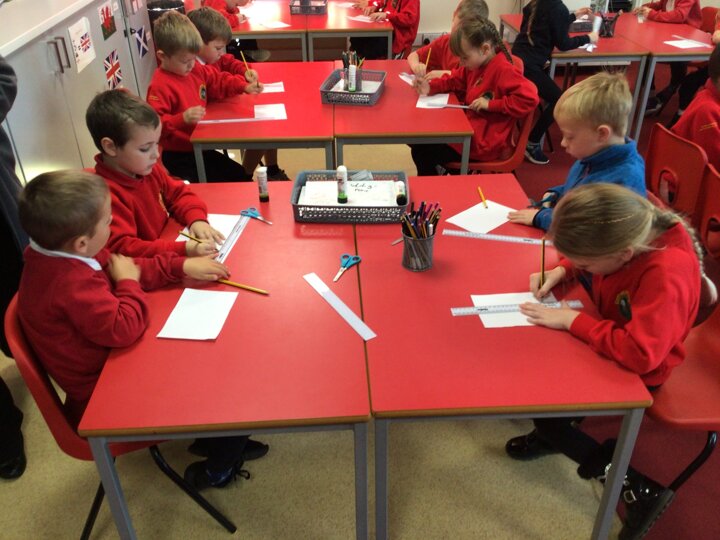
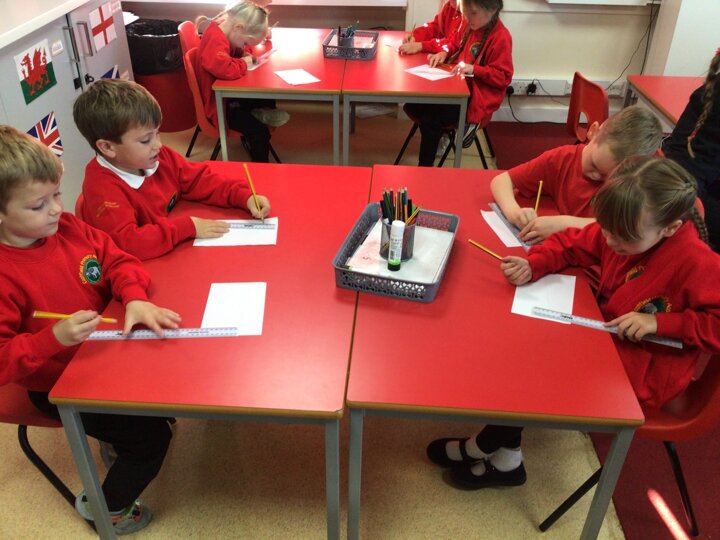
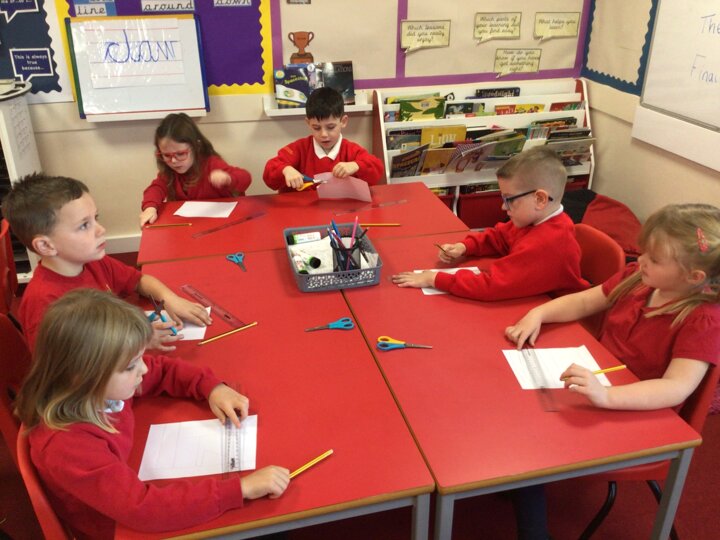
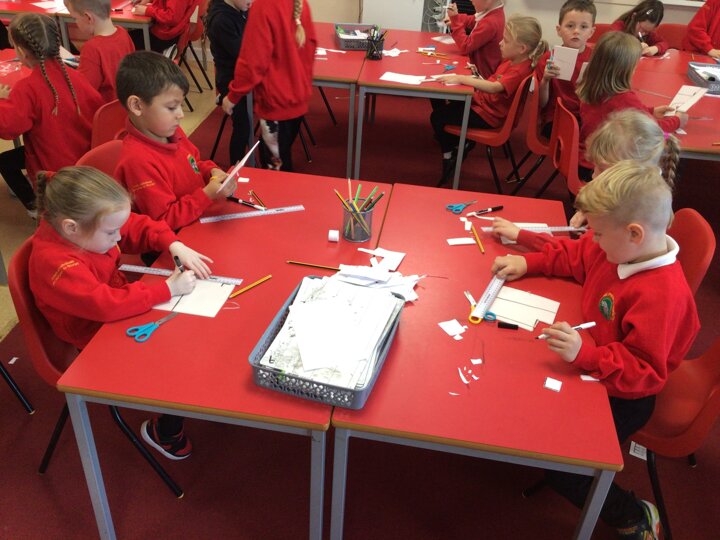
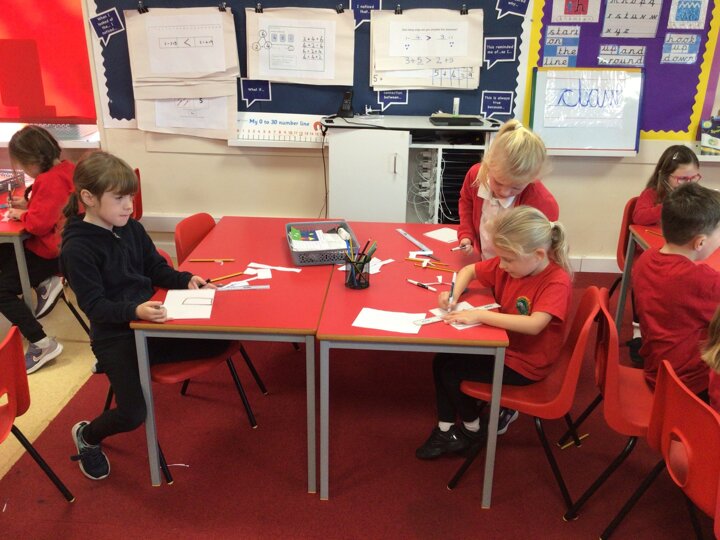
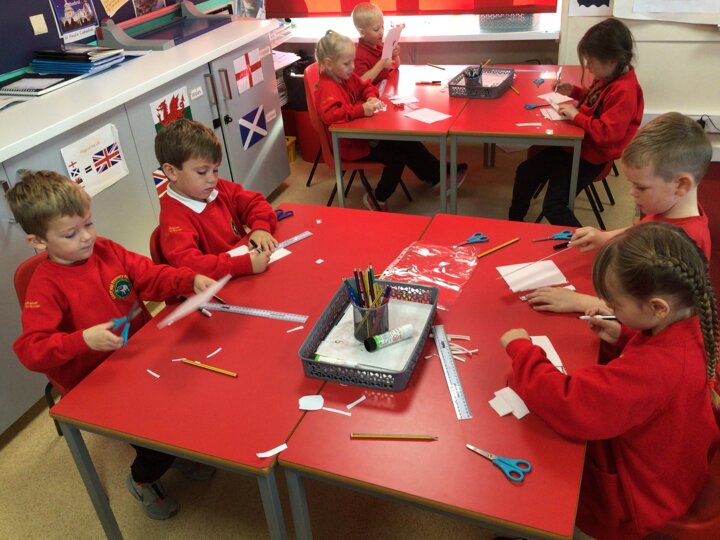
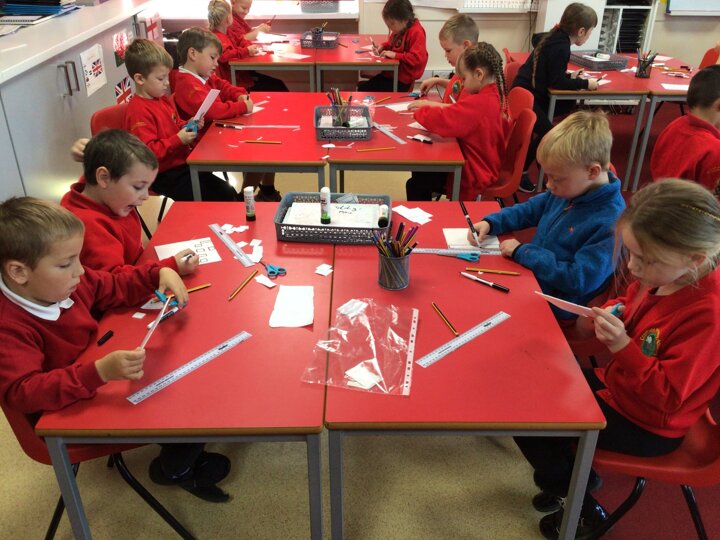
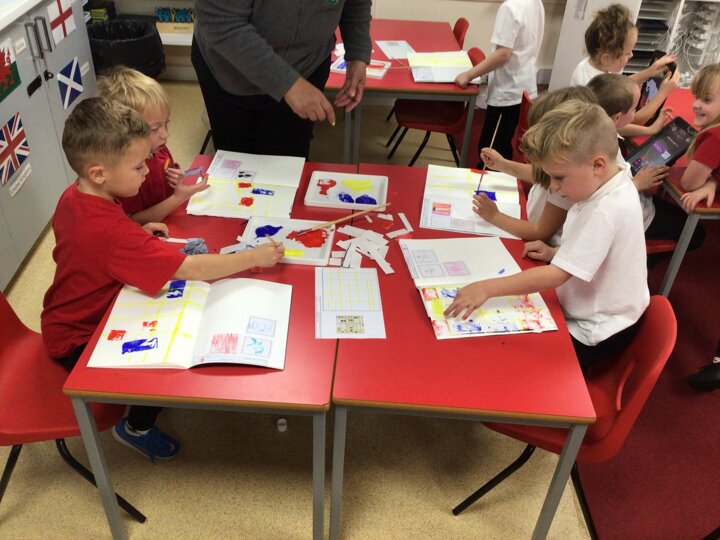
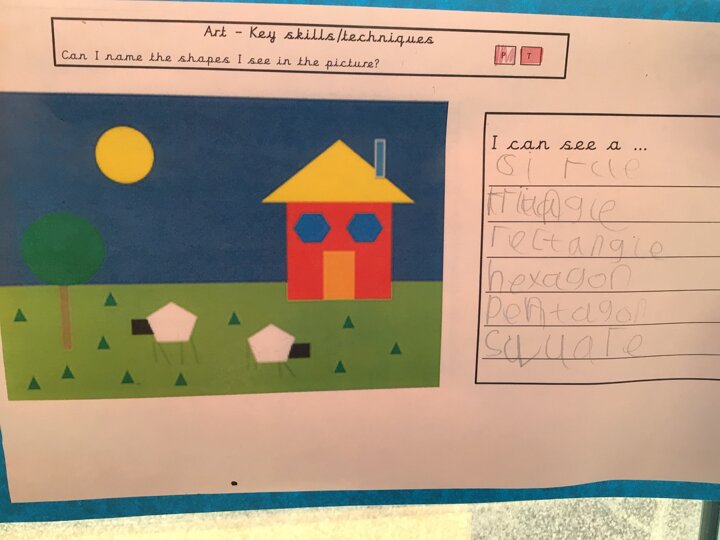
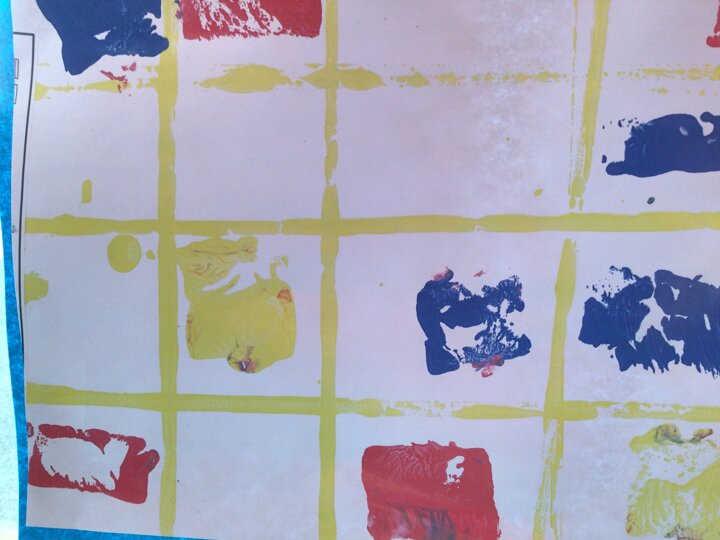
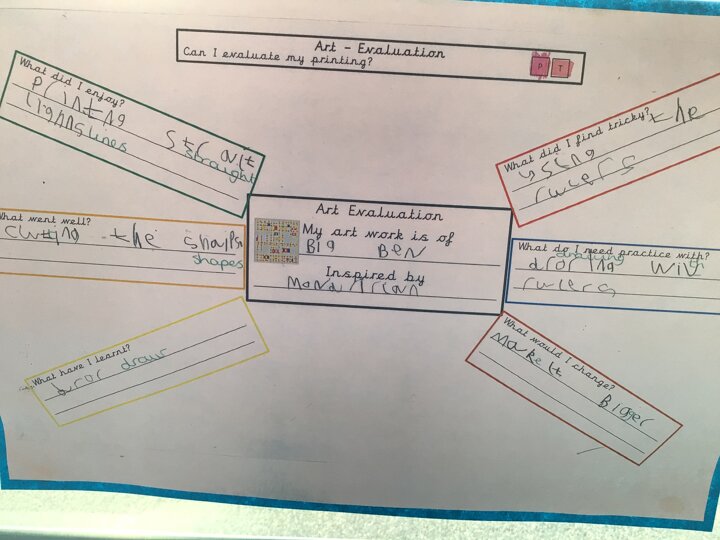
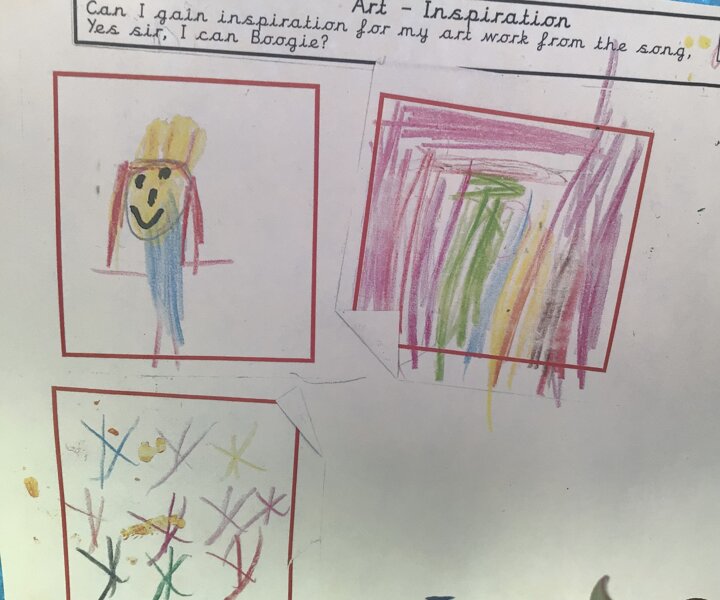
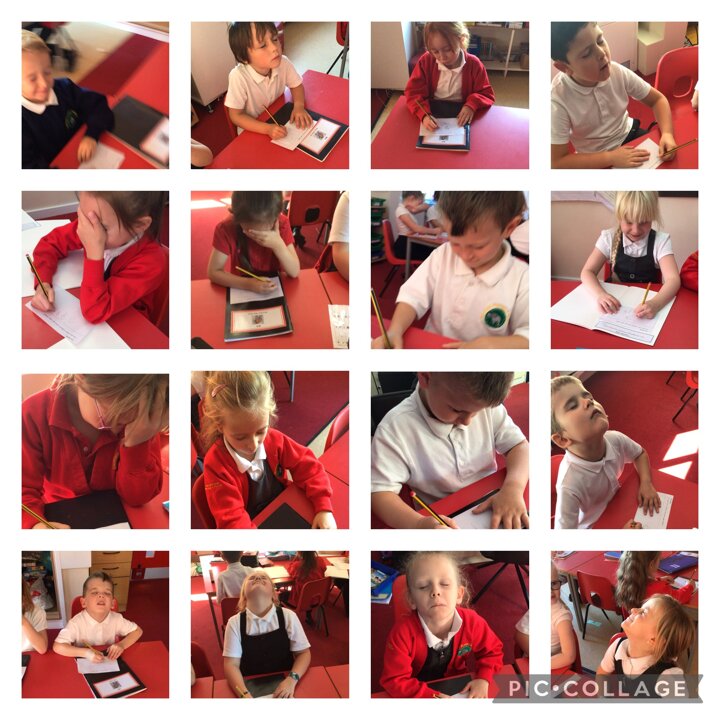
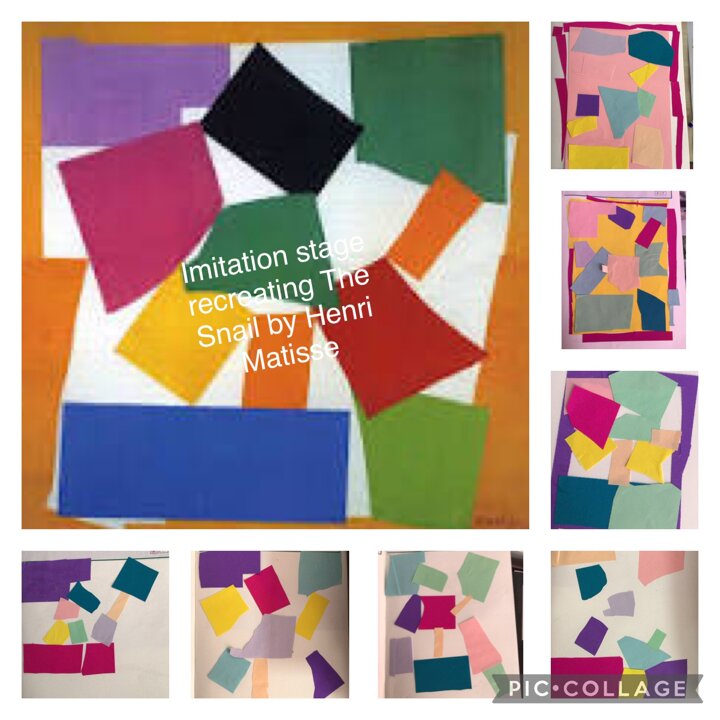
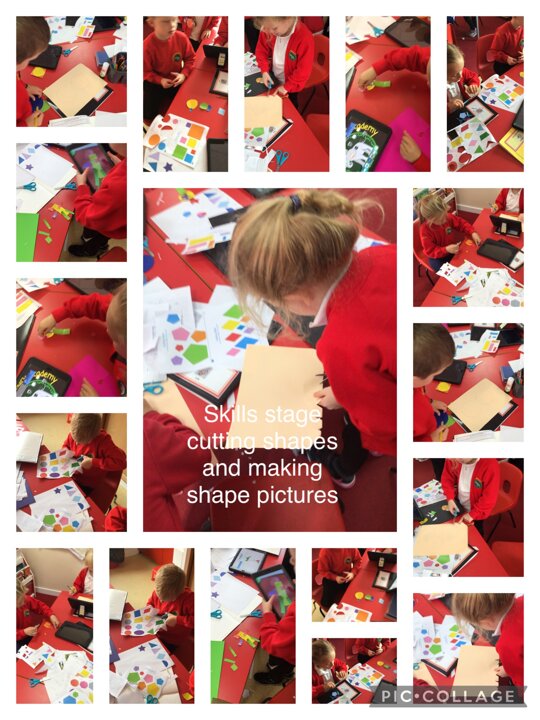
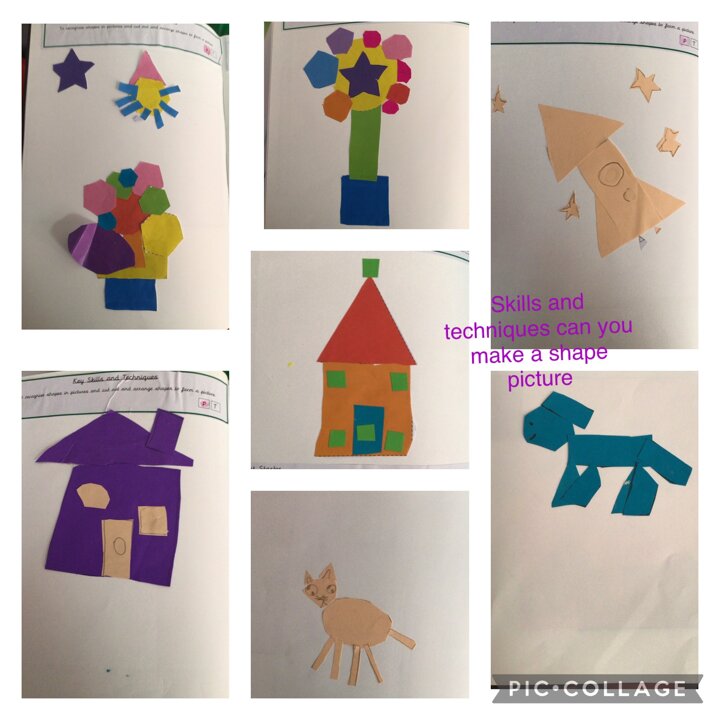
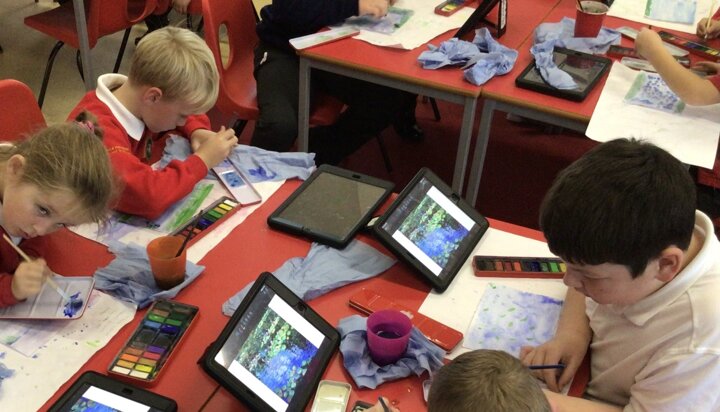
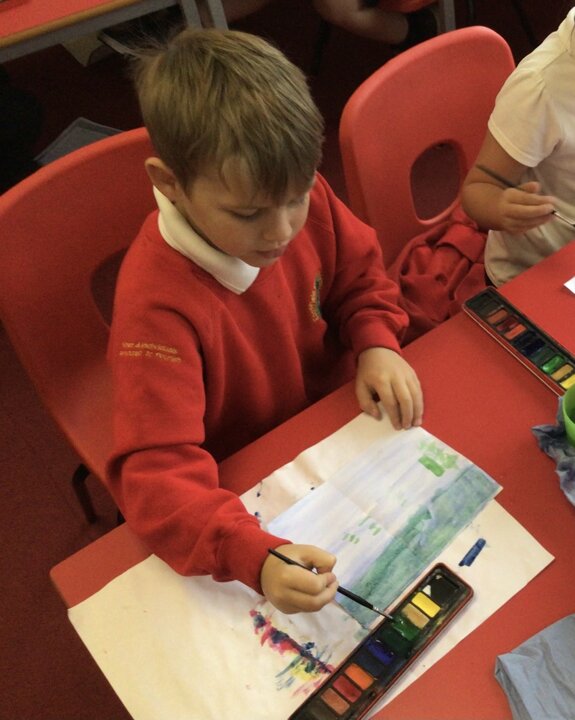
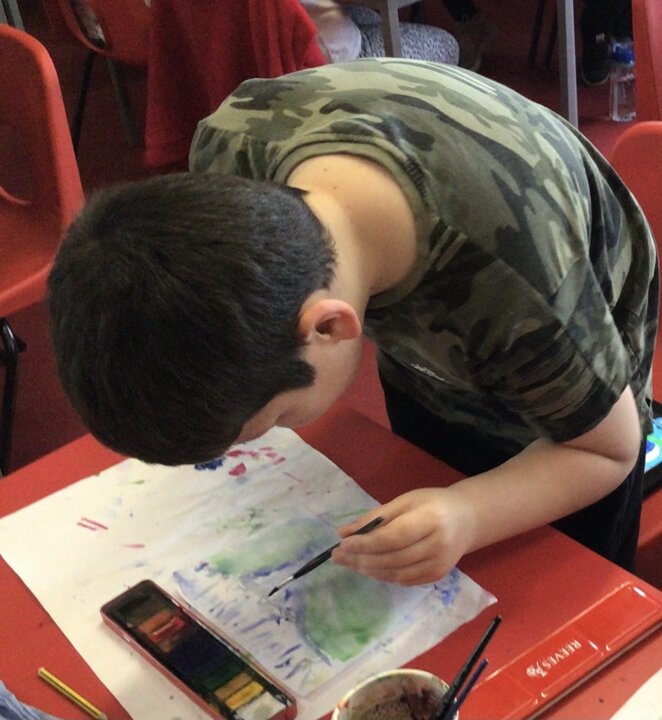
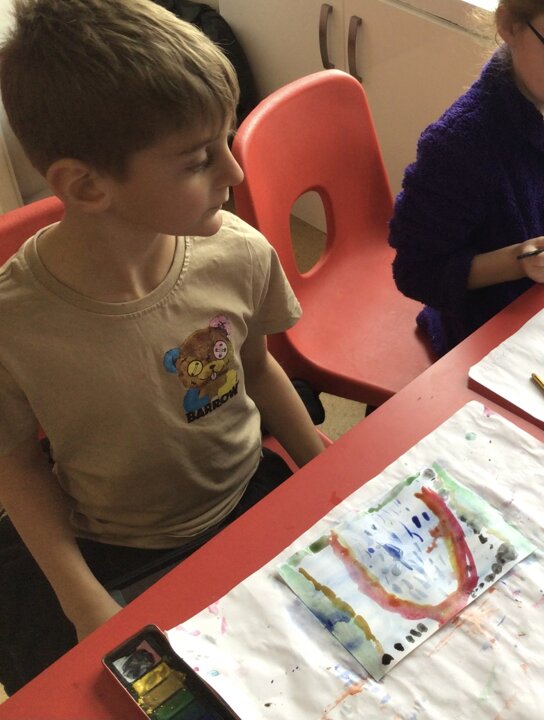
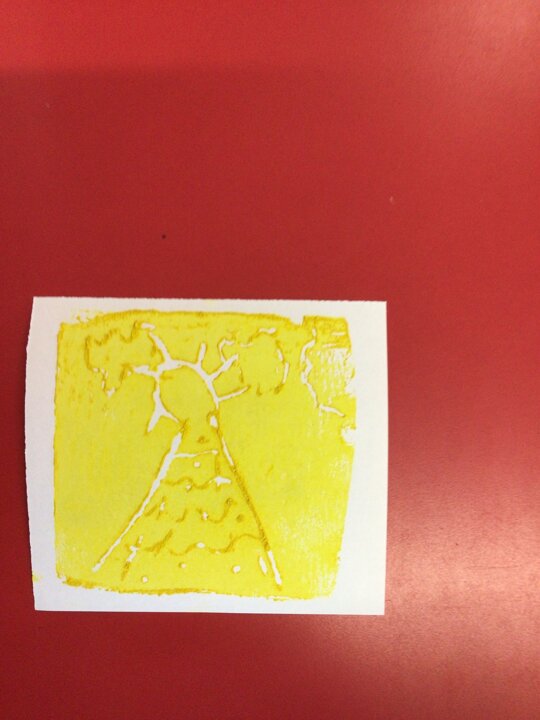
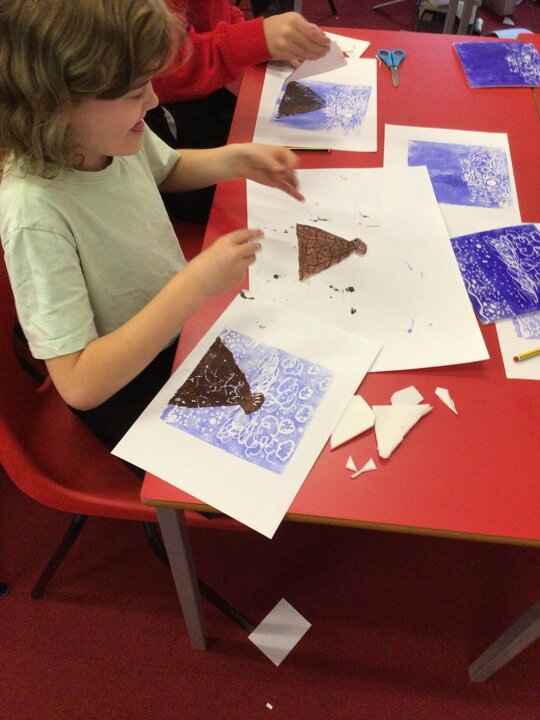
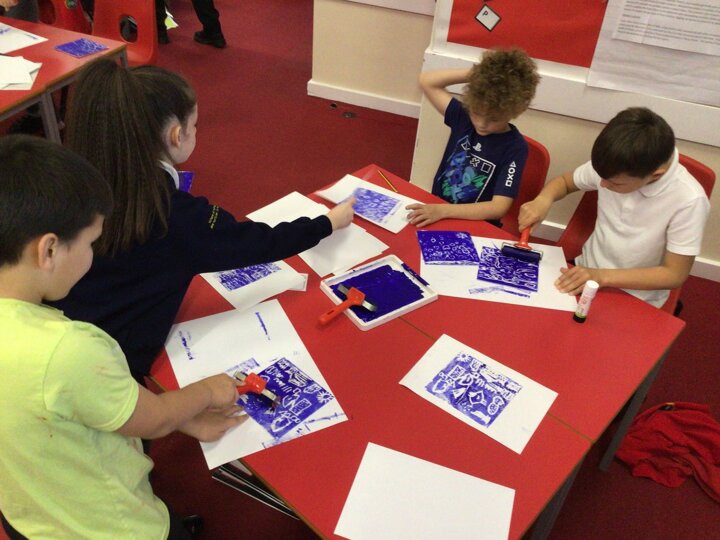
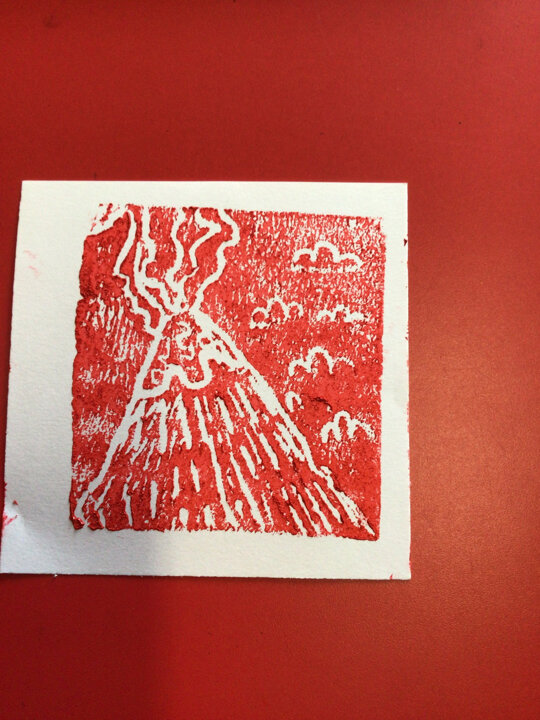
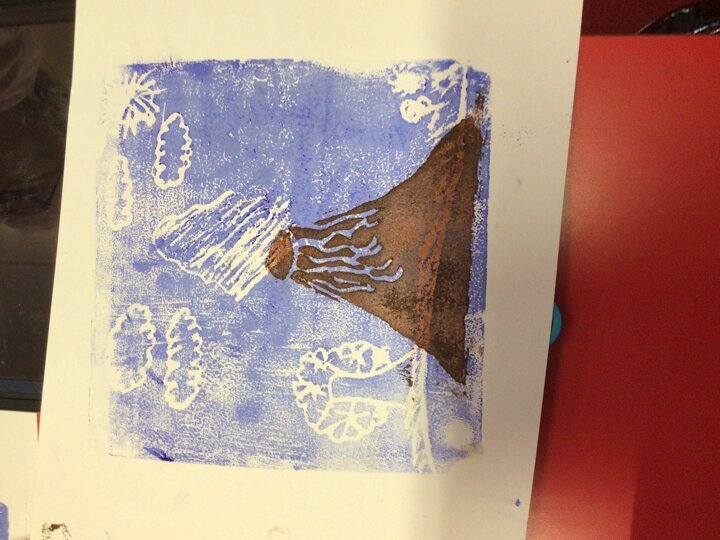
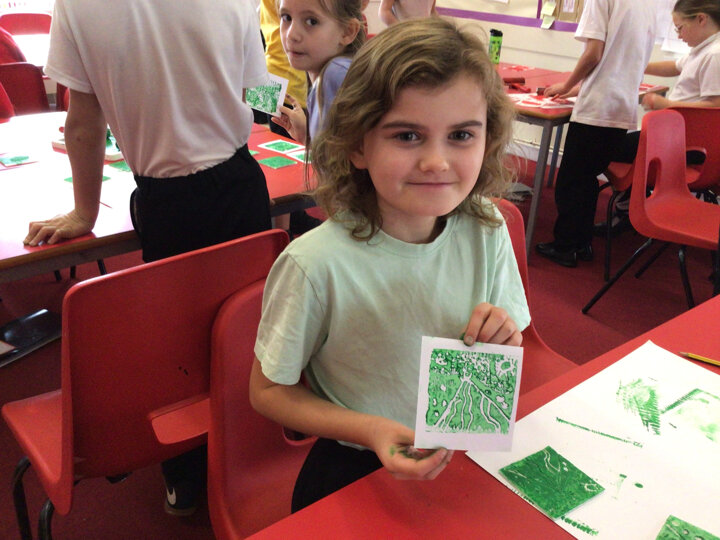
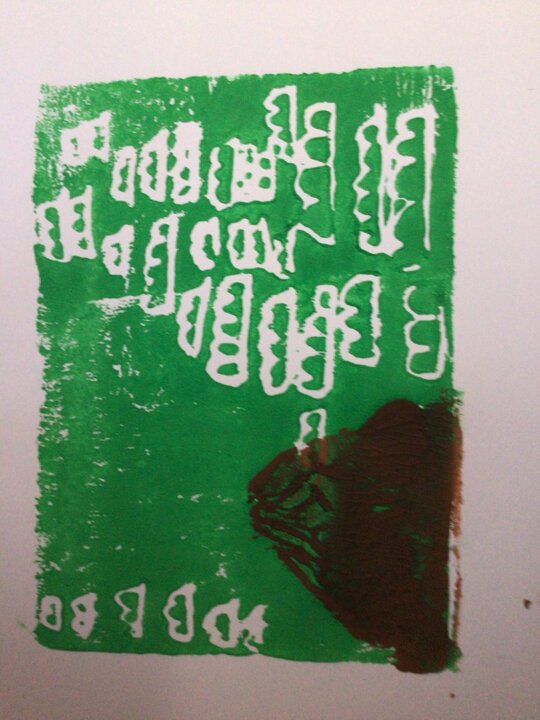
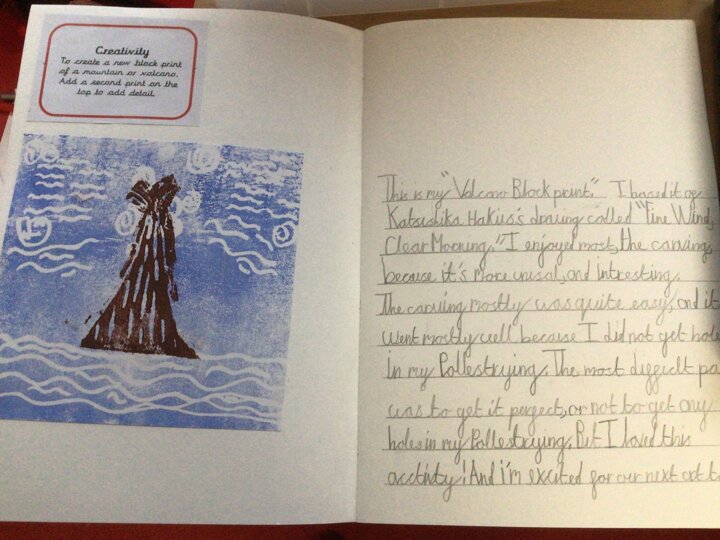
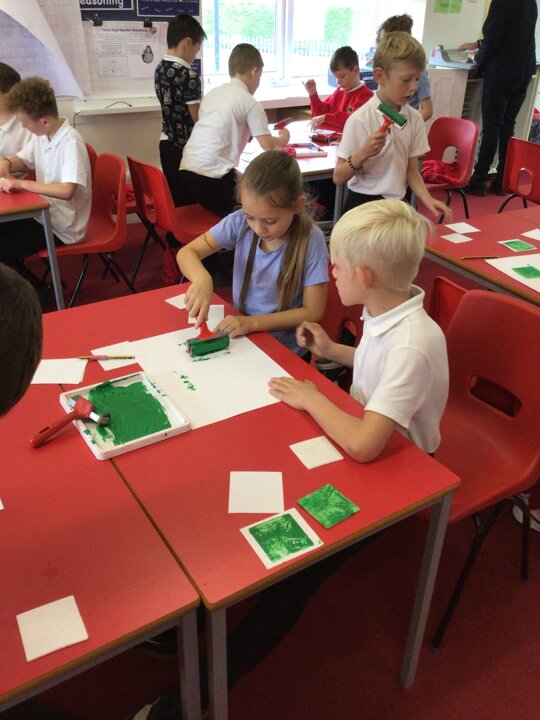
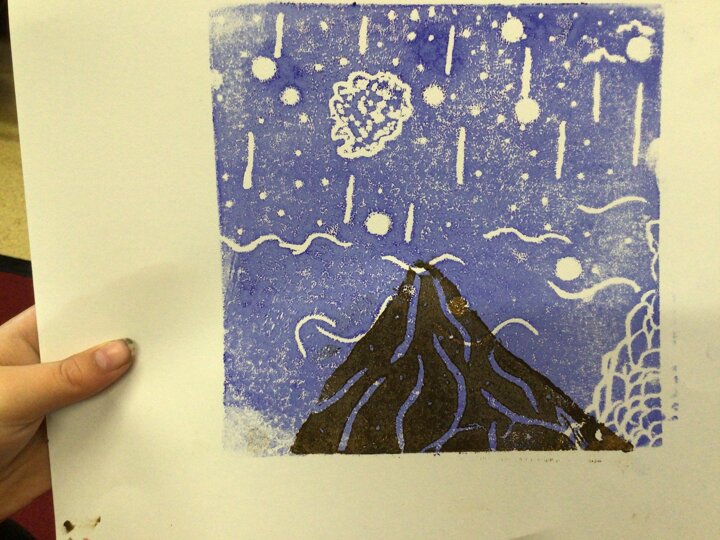
.jpeg)
